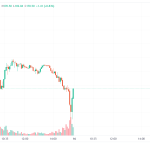Success in trading requires recognizing and addressing one’s beliefs and emotions about risk, loss, and greed.
Overcoming Greed, Loss Avoidance, Emotional Distortions for Trading Success
The psychological complexities of trading and how personal beliefs and emotions can significantly influence trading decisions and outcomes. Here’s a breakdown and elaboration of the key concepts:
Market Conditions and Personal Opinion:
1. Never-Ending Motion of the Market:
o Constant Movement: The market is always in motion, even when it appears static, such as when it is closed. Prices are influenced by traders who buy or sell at different prices, creating a continuous cycle of price changes.
o Theoretical Motion: Prices don't have to be the same when the market opens the next day; they can vary based on overnight developments or trader sentiments.
2. Decisions in Trading:
o Three Basic Decisions: Traders typically face decisions to enter, hold, or liquidate a trade. However, these decisions are part of a more complex process involving determining how much profit or loss is acceptable.
o Emotional Influences: The decision-making process is influenced by personal beliefs about profit, loss, and risk. Greed and fear can distort a trader’s judgment, leading to irrational decisions.
Psychological Factors
1. Greed and Loss:
o Greed: Traders may never feel satisfied with their gains because of the belief that there’s always more to be had. This insatiable desire can lead to holding onto winning trades for too long or taking on excessive risk.
o Loss Aversion: Traders may avoid admitting a trade is a loss or avoid closing a losing position because it represents failure. They might convince themselves that a losing trade will turn around, thus delaying necessary action.
2. Personal Attitudes and Trading:
o "How Much is Enough?": This question varies for each trader and is influenced by personal circumstances, financial needs, and perceptions of money. What might be “enough” today may not be tomorrow, altering how one reacts to market conditions.
o Trading with Disposable Money: Successful traders often recommend trading only with money that one can afford to lose. This approach minimizes the emotional impact of trading decisions and helps in maintaining objectivity.
Market Environment vs. Structured Games
1. Market vs. Gambling:
o Active Participation: In gambling, the player actively chooses to participate and risks only a set amount. Each game ends with a clear outcome, forcing the player to be actively involved in their losses or gains.
o Passive Loss in Markets: In contrast, trading in the financial markets can lead to passive losses. Once a trade is open, losses can continue indefinitely if the trader does not actively close the position. This can result in substantial losses if the trader does not manage the trade effectively.
2. Challenging Issues:
o Active vs. Passive Loss: Unlike structured gambling games, trading requires active management to stop losses. If a trader doesn’t act, they could lose significantly. Personal issues like greed, fear of loss, and the need to be right can complicate this process.
Market Information and Cognitive Biases
1. Pattern Recognition:
o Price Patterns: The market displays a vast number of potential price patterns. Traders often interpret these patterns to make decisions, but their perceptions can be influenced by cognitive biases, leading to distorted assessments of market potential.
2. Selective Filtering:
o Selective Focus: Traders may focus more on price movements that confirm their existing beliefs or biases while ignoring contrary signals. This can lead to poor decision-making, as traders may overlook important information.
Revenge and Emotional Bias
1. Revenge Trading:
o Desire for Recovery: Traders may feel compelled to recover losses from a previous trade, leading to revenge trading. This is where traders try to “get back” at the market for their losses, often resulting in further losses and emotional turmoil.
o Oppositional Relationship: Viewing the market as an adversary rather than a system to interact with can lead to detrimental trading behavior. This adversarial mindset can prevent traders from taking objective actions based on current market conditions.
2. Psychological Damage:
o Internal Conflict: Traders who don’t address their psychological issues may experience significant difficulty in becoming successful. The inability to let go of past losses and to manage emotions can lead to continued poor trading decisions.
Conclusion
The text emphasizes the importance of understanding and managing personal psychological issues in trading. Success in trading requires recognizing and addressing one’s beliefs and emotions about risk, loss, and greed. Traders must learn to let market data guide their decisions rather than being swayed by emotional biases or personal issues. This understanding is crucial for achieving consistent success and avoiding the pitfalls of emotional trading.
Leave a comment
Your email address will not be published. Required fields are marked *



